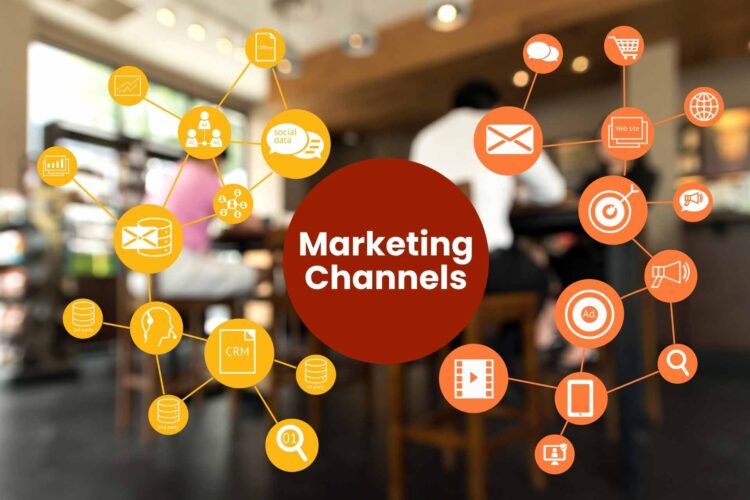
Table of contents:
- Understanding Event Marketing in the Automotive Sector
- Planning Your Event Marketing Strategy
- Executing Successful Events
- Marketing and Promotion Before the Event
- Engaging Customers During the Event
- Leveraging the Event Aftermath for Long-Term Benefits
- Conclusion: Mastering Event Marketing
Imagine walking into a sleek, beautifully organized event at your local car dealership. There’s excitement in the air, the latest models are gleaming under the showroom lights, and you’re greeted with a warm, personalized welcome. This moment serves as an impactful initial introduction and a calculated decision within the automotive advertising realm. Today, we are delving deeply into the core of event marketing for automotive dealerships. What are we aiming for? To arm you with the strategies that turn occasional visitors into loyal customers and raving fans.
Understanding Event Marketing in the Automotive Sector
What is Event Marketing?
At its core, event marketing within car dealerships involves hosting or participating in events to promote a brand, launch new products, or enhance customer relationships. From opening celebrations to test-drive sessions, these events are designed to generate lasting memories that build brand loyalty and engage customers.
The Influence on Customer Engagement and Brand Loyalty.
A well-executed event can transform the customer experience, making your dealership not just a place to buy cars but a community hub. For instance, think about a dealership hosting a family fun day event. It not only showcases the family-friendly vehicle range but also connects the brand with community values, deeply embedding the dealership in the lives of local families.
Differentiating Your Dealership
To stand out in a competitive market, your events must go beyond the basics. Creating unique, experience-driven events that resonate with your audience’s lifestyle and interests can set your dealership apart. Imagine an eco-friendly test drive event that not only highlights the features of hybrid vehicles but also educates attendees on sustainable living.
Planning Your Event Marketing Strategy
Setting Clear Objectives
Begin with the end in mind. What are your goals for your event? Is it higher sales, improved brand recognition, or involvement with the community? Setting clear, measurable goals is the first step to a successful event.
Knowing Your Audience
For whom are your events catered? It is essential to comprehend your target audience. Are they young tech-savvy professionals interested in performance and innovation or families looking for safety and comfort? Customizing your event to tailor to the specific needs and desires of your audience guarantees relevance and efficiency.
Choosing the Right Types of Events
Different events serve different purposes. Open houses might showcase your facility and services, launch parties can build excitement around new models, and test-drive days allow customers to experience the cars firsthand. Working together with car companies and small businesses can enhance the effectiveness of these occasions.
Executing Successful Events
Logistics and Planning
Every successful event is backed by meticulous planning. Selecting the appropriate location, date, time, and budget should match up with your objectives and the preferences of your audience. Whether it’s an indoor event that showcases luxury vehicles or an outdoor family day that uses the space for safety demonstrations, logistics can make or break an event.
Creating a Memorable Theme
The theme of your event should resonate with your brand and audience. Whether it’s “Future of Mobility” showcasing technological advancements or a “Retro Revival” that displays classic cars, a strong theme can significantly enhance the attendee experience.
Utilizing Technology
Modern events leverage technology for efficiency and engagement. From digital registrations to interactive displays or apps that allow guests to customize cars on digital screens, technology can take your event from good to great.
Staff Training
Your team should be well-prepared to handle the event. This includes not only the basics of hospitality but also deep product knowledge and the ability to engage with attendees on a more personal level.
Marketing and Promotion Before the Event
Digital Marketing Strategies
In the current digital era, online platforms are essential for promoting events. Utilizing social media for teasers, email marketing for personal invites, and online advertising can build anticipation and ensure a high turnout.
Conven methods of marketing
Don’t underestimate the importance of classic approaches such as distributing flyers, airing radio advertisements locally, and issuing press releases. These can be particularly effective in reaching local audiences who may not be as active online.
Partnerships for Wider Reach
Partnering with local companies or influencers who have a similar audience can help broaden your event’s exposure and enhance the credibility of your marketing efforts.
Engaging Customers During the Event
Making a Lasting First Impression
How your guests are welcomed can establish the atmosphere for the whole occasion. A warm, professional welcome coupled with an impressive setup can make a significant impact.
Interactive Experiences
Incorporating interactive elements like test drives, virtual reality setups, and hands-on demonstrations can make your event not only informative but also exciting and memorable.
Capturing Feedback
Engaging with guests and collecting feedback during the event can provide valuable insights for future planning and immediate adjustments.
Leveraging the Event Aftermath for Long-Term Benefits
Follow-Up Strategies
After the event, effective follow-up can convert attendees into customers. Personalized emails, special offers, and thank you notes can keep your dealership at the top of their minds.
The proof is provided by observing how others behave
Sharing highlights and testimonials from the event on your social media and website can enhance your brand’s credibility and attract new customers.
Analyzing Success
Post-event, it’s crucial to measure the effectiveness of the event against your initial objectives. This evaluation demonstrates not just the importance of your hard work but also suggests ways to enhance future performance.
Conclusion: Mastering Event Marketing
Effective event marketing requires careful planning, creative execution, and diligent follow-up. This assessment demonstrates the importance of your work and offers suggestions for future enhancements. Remember, each event is an opportunity to showcase the best of what you offer and to deepen your connections with the community.
Do you have additional inquiries about marketing for car dealerships? Visit our blog section for further information. Contact our support team via email at marketing@goautomotivemarketing or call 1 (470) 791-9755 to clarify your doubts. The GoAutomotive Marketing Expert Support Team is willing to help you with pleasure.



